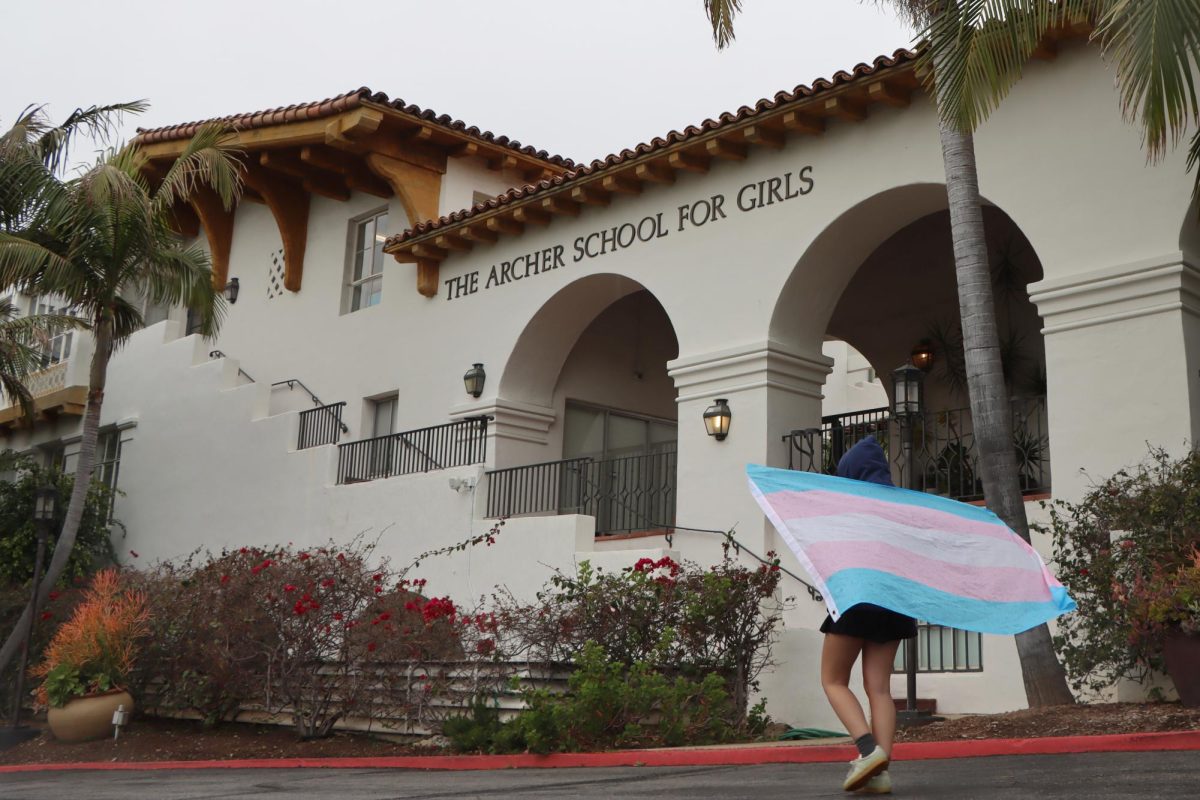For the past four months, Hollywood’s writers have been on strike. SAG-AFTRA, which represents Hollywood’s actors, joined the Writers Guild of America in their strike against the Alliance of Motion Picture and Television Producers July 23. This dual strike marks the first time the SAG-AFTRA and the WGA have united since 1960 and is resulting in a historic industry-wide shutdown of Hollywood.
Archer is located in Los Angeles, where Hollywood is a leading industry and many members of the Archer community work in the TV, film and screenwriting industries. Hollywood actors and writers have been without work for months.
Why the WGA and SAG-AFTRA are on Strike
The Switch to Streaming
Until about 15 years ago, people primarily consumed TV through network shows, broadcast television and DVDs. When a show airs on a network, both the actors and writers involved receive payments known as residuals.
“For ABC and NBC network shows, you know what the ratings are, and you know how many people are watching. You even know how many people are DVRing it. There’s numbers for all of that, and you track it,” actress and Archer parent Ana Ortiz said. “If you’re lucky enough to get a show that goes into syndication, you get paid for that. This is a way of survival for a lot of actors.”
The surge in popularity of streaming services has brought about a significant change in both the screenwriting and acting industries. However, studios have not adjusted the traditional payment structures to account for this change. The unions are proposing to establish a residual system based on viewership figures, allowing additional rewards for shows with higher viewership. They are also asking studios to institute a guaranteed minimum residual.
“We get residuals for streaming services, but it isn’t comparable to the residuals we get through other spaces like broadcast television,” TV writer and producer Brian Tanen said. “Because streaming is so prevalent and it is where most of our shows air, we want to make sure that these residuals are calculated in a way that is fair.”
In the past, seasons of shows commonly included 20 or more episodes. However, with the switch to streaming services, TV series with fewer episodes are more prevalent. Shorter seasons mean a shorter length of employment for writers and actors.
“It would be very unlikely that I would have the opportunity to create a show as successful and enduring as ‘Grey’s Anatomy,'” writer and actress Jamie Denbo said. “What I would probably create is 10 episodes of a limited series, and if I’m not compensated enough to live in the two years that it will take to make 10 episodes of television, I can’t stay in this business. It’s not affordable. They’re going to run 75% of the people who create the shows that you love out of the business because of the way we watch TV now.”
The Use of AI
AI has become a central topic of discussion in the negotiations for both unions. Screenwriters are concerned that their own scripts will be used to advance AI systems to generate more human-like scripts, essentially diminishing the need for their jobs.
“ChatGPT doesn’t have memories. ChatGPT couldn’t write a show like ‘The Sopranos.’ Now, they could write a knockoff of it because it’s in the system,” Ortiz said. “Ultimately, ‘Succession,‘ ‘The Bear’ and all of these incredibly brilliant shows come from a certain type of genius, and these writers pour their heart and souls into these scripts.”
Additionally, some actors are concerned about the future of extras because of the role that AI can play in reusing scanned images. Studios are thinking of hiring extras for one day of work and then scanning their image to use in perpetuity for free.
“It’s completely insane — taking away the livelihood of so many people who are an essential part of TV,” Ortiz said. “Also, what does it mean for someone who does background acting to start out and then book bigger roles? If they had done background acting in the past, could they still use the image in the future for free because they already own it?”
Mini-Rooms
Mini-rooms are smaller than typical writers’ rooms and are usually designated for series not yet approved. They contain two to three writers, including the showrunner. The WGA is advocating for a minimum of six writers in the room, regardless of whether a show is picked up or not. The AMPTP no longer allows writers to be on set, which the WGA is speaking out against.
“A studio or network will say, ‘We think we want this show, [but] we’re not 100% sure. We’re going to put forward a mini room.’ Sometimes it’s a couple episodes, but sometimes it’s a season worth of episodes,” Tanen said. “They have the writers work on the show, but they said they are not fully committed. It’s a loophole. It’s a way that they can pay less. Writers aren’t fully getting paid for the producing side of their job. So, everyone makes this scale rate that is oftentimes a lot less than what they would normally make in a normal room.”
Ortiz said she is concerned about what smaller writers rooms mean for diversity and up-and-coming writers.
“My cousin is a young Puerto Rican writer — that’s really something she aspires to be,” Ortiz said. “Where is there a place for her? Why should she not be able to follow her dreams, too?”
Self-Taped Auditions
Another reason that actors are on strike is because of the increased popularity of self-taped auditions since the pandemic. Many studios are abandoning the traditional in-person auditions and replacing them with self-taped auditions.
“They’ll send you six scenes, and it’s 13-15 pages of material. And whereas, before, when they had to see you and sit in the room — they didn’t want to sit through 100 actors doing six scenes. They really took advantage of actors in that way,” Ortiz said. “The costs to record self-taped auditions can really add up unless you buy your own equipment. I’ve gotten to the point where I’m just doing it in my house because I can’t afford to go to the studio.”
The position of the AMPTP
The AMPTP is currently offering most TV series writers a minimum of 10 weeks of employment. The studios are also proposing to allow show runners to hire two writers for 20 weeks and a minimum of two writers for the writers room and production period.
The streaming platforms are proposing to disclose the total number of hours viewed for each “made-for-streaming show” in confidential reports. The AMPTP is also offering increased minimums. The AMPTP has also agreed to a WGA proposal to guarantee that writers’ compensation and credit will not be reduced if written material is generated by AI and that writers cannot be required to use AI.
The Oracle reached out to the president of the AMPTP for comment but received no response.
Impact of the Strikes on the Archer Community
According to NBC, “there’s still no end in sight for the Hollywood strikes,” as both unions and the AMPTP are still largely split on significant issues, hindering negotiations between them. Ortiz said that the strikes have been particularly difficult on those who have family working in Hollywood.
“It’s terrifying because you just don’t know how you’re going to pay your bills. My kids go to Archer: that’s no small cost,” Ortiz said. “Your kids start to see you worrying, too, which is awful. It affects everyone around you. It affects all of us as a family. I try not to worry too much in front of them, but it really becomes difficult when it’s going on and on and you hear the AMPTP saying that they’re not going to give in.”
Many actors and writers in L.A. are picketing and participating in the protests to show solidarity for the cause.
“We had a day where all the ‘Ugly Betty’ people protested, and I’ve been seeing other shows going out and do that where the writers and the actors come together and picket together,” Ortiz said. “It’s this really beautiful feeling of solidarity, and I really feel that we will come out with a good, fair deal and that we are fighting the good fight.












Francie Wallack • Sep 18, 2023 at 10:17 am
Love how in depth this is Surya! Great job, such a interesting article.